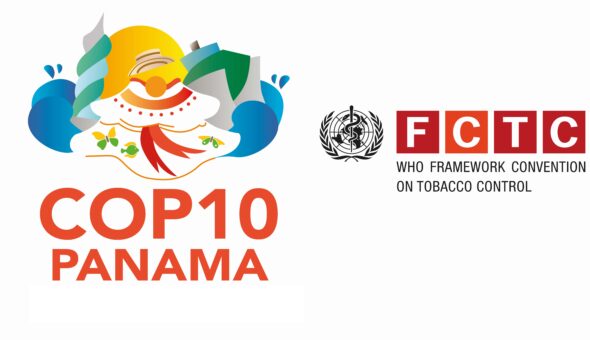Effective tobacco control policies cut smoking rates and save lives. But they also impact tobacco industry profits, so it’s no surprise that the industry fights against them. New research from the University of Bath reveals how both traditional and newer forms of media have become powerful tools for those wishing to obstruct tobacco control.
The tobacco industry has a long history of opposing tobacco control by constructing an alternative narrative on how public health policies will negatively impact communities. Common arguments and tactics might include exaggerating the economic costs of the proposed policies, discrediting scientific research, intimidating governments through litigation, and manipulating public opinion.
The media can be a powerful tool in these efforts. While some work has been done on how the tobacco industry influences the media in high-income countries, until now there has been little exploration of the situation in low- and middle-income countries (LMICs). A new study from the University of Bath has analysed how the industry influenced the framing of arguments against increased tobacco control in South African media.
A new proposal for tobacco control
In 2018, South Africa’s Minister of Health invited public comment on the proposed Control of Tobacco Products and Electronic Delivery Systems Bill. This would seek to introduce plain packaging, remove designated smoking areas in restaurants, ban outdoor smoking in public areas, ban retailers from displaying cigarettes and cigarette vending machines, and regulate e-cigarettes in the same way as tobacco products.
While the numbers of smokers are declining in high-income countries, this is not the case in all LMICs, and these declines may be slowing down. In Africa, for example, the demand for cigarettes, is projected to keep increasing. This creates a heavy burden on health and social care in countries least able to afford it. South Africa, in particular, has fallen from the position of a global tobacco control leader in the 1990s, with the subsequent stalling of regulatory progress, and the persistently high levels of tobacco use among certain vulnerable communities.
For the tobacco industry, more smokers offer an opportunity, particularly in areas where tobacco control is lax. It is in its interests to fight against increased tobacco control and undermine policy efforts.
Using the media to influence policy
This new research highlights the industry’s ability to control the focus of policy debates in the media and promote its economic arguments against regulation. Economic arguments prey on public fears of job losses and harm to local business, including farming, as well as prompting anxiety around increases in illicit trade and the loss of tax revenue. While these arguments are often specious and hypocritical, they allow the industry to portray itself as an essential part of a country’s economy, a role that would be harmed by increased legislation.
In South Africa, these arguments were promoted by industry spokespeople, trade unions, organisations of retailers, media celebrities and think tanks—many of which have been identified as industry front groups or third-party lobbyists. Their efforts were concentrated around specific policy ‘windows’, and the industry launched tailored campaigns focusing on criticising individual provisions of the Bill or tobacco tax increases. Our findings are consistent with evidence of tobacco industry strategies to garner media attention, for example, by promoting its own data on illicit tobacco trade among journalists.
What needs to happen?
What does this mean for tobacco control? We recommend that public health and tobacco control advocates and their funders need to:
- Pre-empt economic arguments about tobacco control policies by producing economic studies that counter industry claims, modelling studies of the effectiveness of tobacco control policies and cost-savings to the health system, and accurate data about the number of people employed by the tobacco industry.
- Support local tobacco control advocates to successfully access the media to counter the tobacco industry’s arguments. This is especially important given evidence that tobacco companies provide journalists with a range of incentives (eg: training, study tours, financial and in-kind incentives) which likely affects how those journalists frame tobacco issues.
- Monitor media outputs and engage with journalists and editors to ensure greater transparency in media reporting, and greater awareness and exposure of conflicts of interest when reporting on issues of tobacco control.
It can be difficult for local advocates and health experts to counter tobacco industry arguments and tactics; they simply don’t have equivalent resources to those of the industry. As previous research has suggested, local and international tobacco control advocates need the support of global funders to help them form relationships with the media to ensure greater transparency in reporting on tobacco control, and build a relevant scientific base to pre-empt, counter, and expose the hypocritical nature of arguments advanced by the industry.
Three years on from when it was first announced, the South Africa tobacco control legislation remains unenacted, an outcome that has likely been influenced by the industry’s use of newspapers and media to promote its position.
Using social media
To complicate matters further, modern media is evolving, with social media offering increasingly popular platforms. Social media allow those with vested interests to easily disseminate their arguments and shape public opinion. While there has been some research on how the industry uses social media to shape debates, more insight is needed, particularly in LMICs.
Our ongoing research explores the social media debate around the tobacco and vaping products sales ban in South Africa during 2020's COVID-19 lockdown, and looks at which arguments and actors dominated the debate. Our initial findings suggest that, again, the Twitter debate was dominated by economic arguments, with tweets of industry-linked users being particularly prominent.
Altogether, our research on South Africa highlights how the tobacco industry has promoted its well-rehearsed arguments to shape public opinion around tobacco control policies, in attempts to evade regulation and maintain profits, across traditional and newer media.
About this blog
This blog was prepared by Sarah Dance, Amy Lunt and Mateusz Zatońskiis based on the following paper: , et al. Framing the policy debate over tobacco control legislation and tobacco taxation in South Africa,
Header image by AbsolutVision on Unsplash



